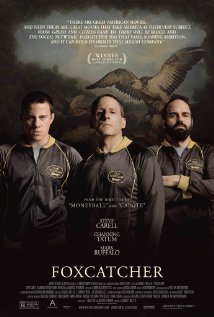Infinitely Polar Bear (2015)


Content by Tony Macklin. Originally published on July 19, 2015 @ tonymacklin.net.
Infinitely Polar Bear might be called Infinitely Nepotism.
Written and directed by Maya Forbes, it focuses on family life with her actual father (played by Mark Ruffalo), who was manic depressive - bipolar. Maya's husband (Wallace Woldarsky) produced it and has a small role. And their daughter has a featured part as the older daughter.
Every year or so, a film that competed in the Sundance Film Festival gets released the next summer. As long as it is heart-warming and mind-numbing. Infinitely Polar Bear fits the criterion of a glass half-filled with a soft drink.
Maya Forbes said that she was influenced by Noah Baumbach's The Squid and the Whale (2005). It also was a success at Sundance. Her film is pretentious, but as much as it tries it can't equal Baumbach's pretention.
Set in Cambridge, Massachusetts, and environs in 1978, Infinitely Polar Bear is about a family's coping with a father who is mentally-unsettled, and given to impulsive, unpredictable behavior.
Cam (Ruffalo) and Maggie (Zoe Saldana) are a racially-mixed couple with two preteen daughters - Amelia (Imogen Woldarsky) and Faith (Ashley Aufderheide). They are a loving family. But when Cam has a breakdown, he is institutionalized.
On his release, he tries to recover familial stability. Maggie wants to go for 18 months to Columbia in New York City to get her M.B.A. She is committed to making a better life for her children. But what to do with them in the present?
She agrees to leave them in Cam's care in an apartment in a poor neighborhood in Cambridge. He does his best, but it produces fanciful havoc and chaos. However, I think, somehow things will work out.
Infinitely Polar Bear has a weak screenplay. There's no climactic build-up, and Forbes only pays lip service to some themes she raises. Her daughter Amelia says, "Am I black?" Amelia says other children have questioned her. But there's only a short dialogue - between mother and daughters - before the theme is dismissed.
There isn't a single scene that shows the children ever having to deal with the potentially provocative issue. Remember it was 1978. Why even bring up the theme if you're going to be so superficial? Just throw in a few words.
The dialogue is labored. The actors yell a lot, but that adds little to the dialogue. It is bathed in bubble-bath music in an attempt to increase meaning. It doesn't.
"I'm a pathetic whiner," says Cam. The script made me say so.
Some day I'm going to figure out why so many women - especially writers for tv shows - make their male characters say things they never would in words they wouldn't use.
Forbes has the youngest daughter say, "I vowed never to cry again." Ah, the vows of preteens.
And she has a man in a van (played by her own husband) ask, "Who was that?" - despite having just seen the man. At least, she could have given her husband a better line.
Forbes also makes the father less extreme than he seems to have been. The character is less odd, so as not to offend the audience. Most of the time, he just acts like an anxious puppy.
Mark Ruffalo does his part. He relies on his patented semi-dazed expression throughout the film. He relapses into it after his strong, human performance in Foxcatcher last year.
Infinitely Polar Bear is this year's Sundance delight.



